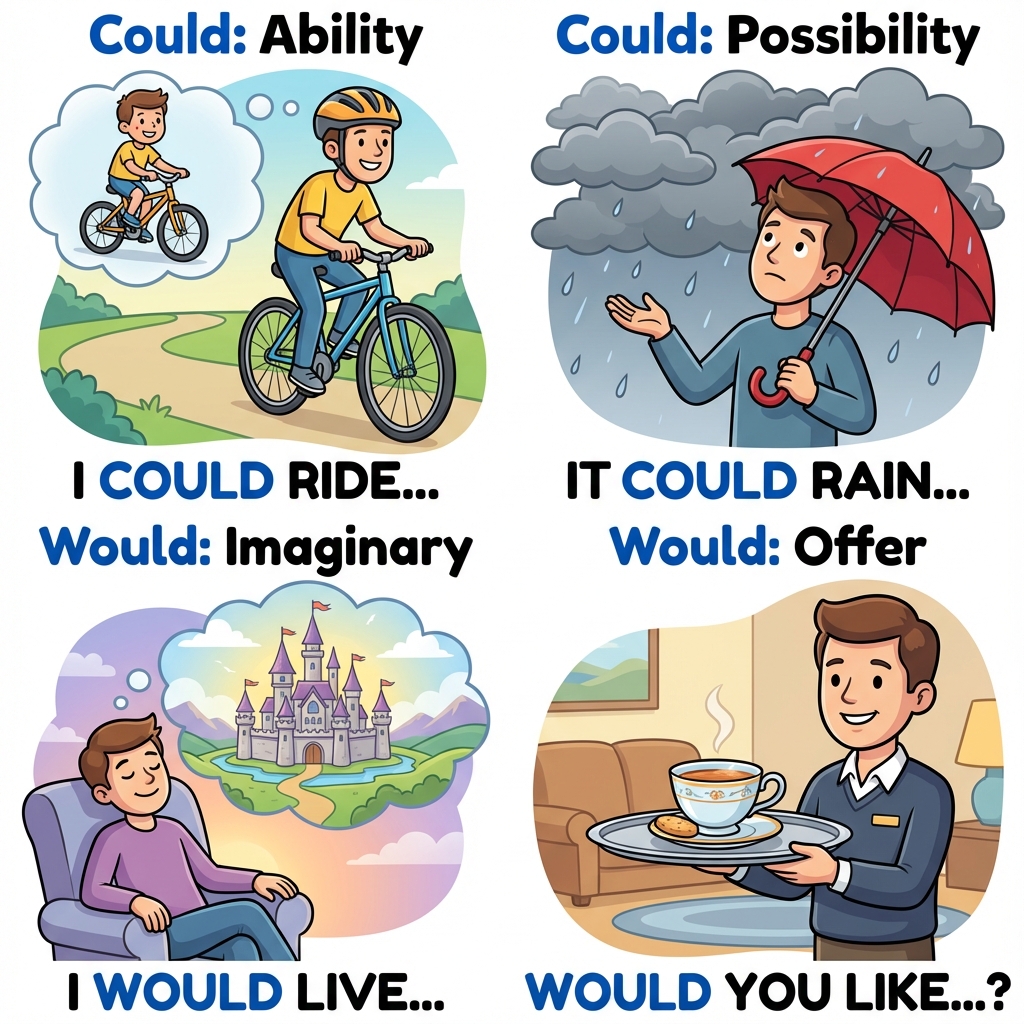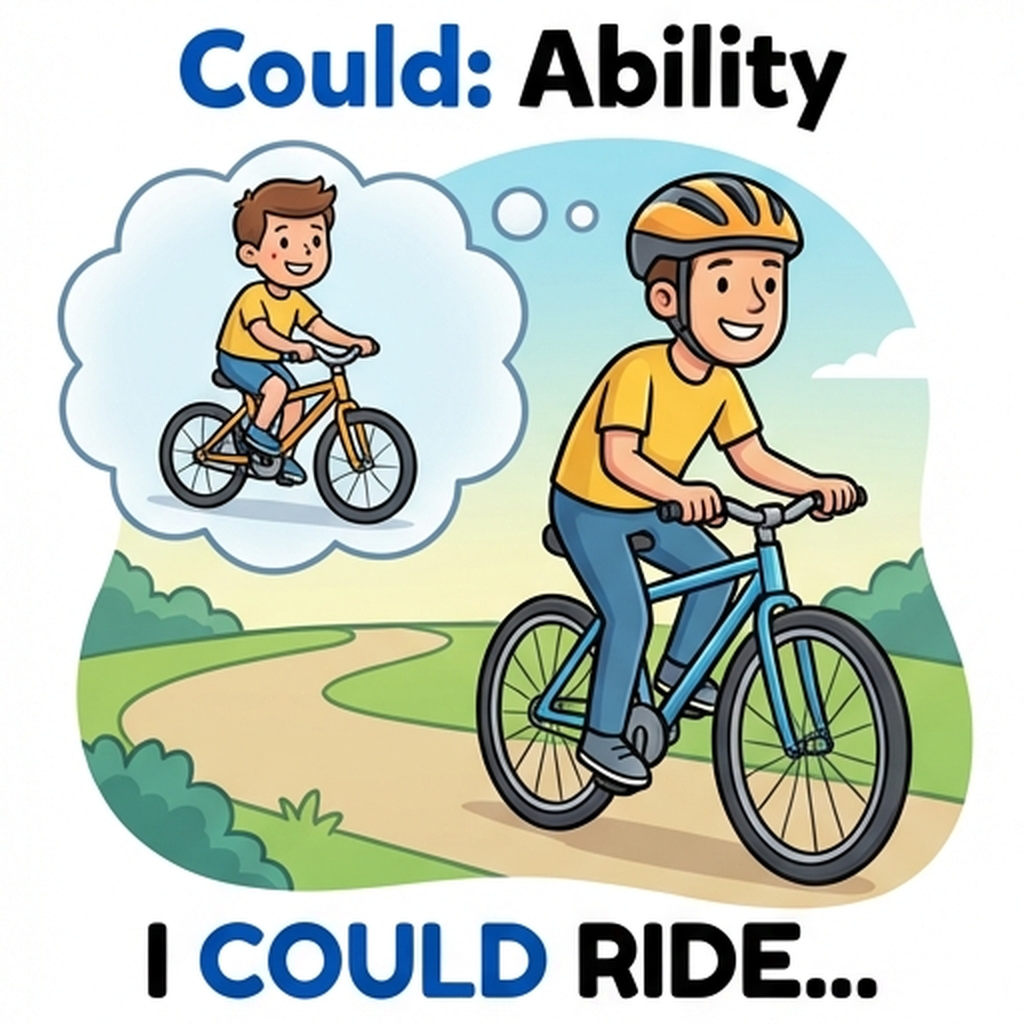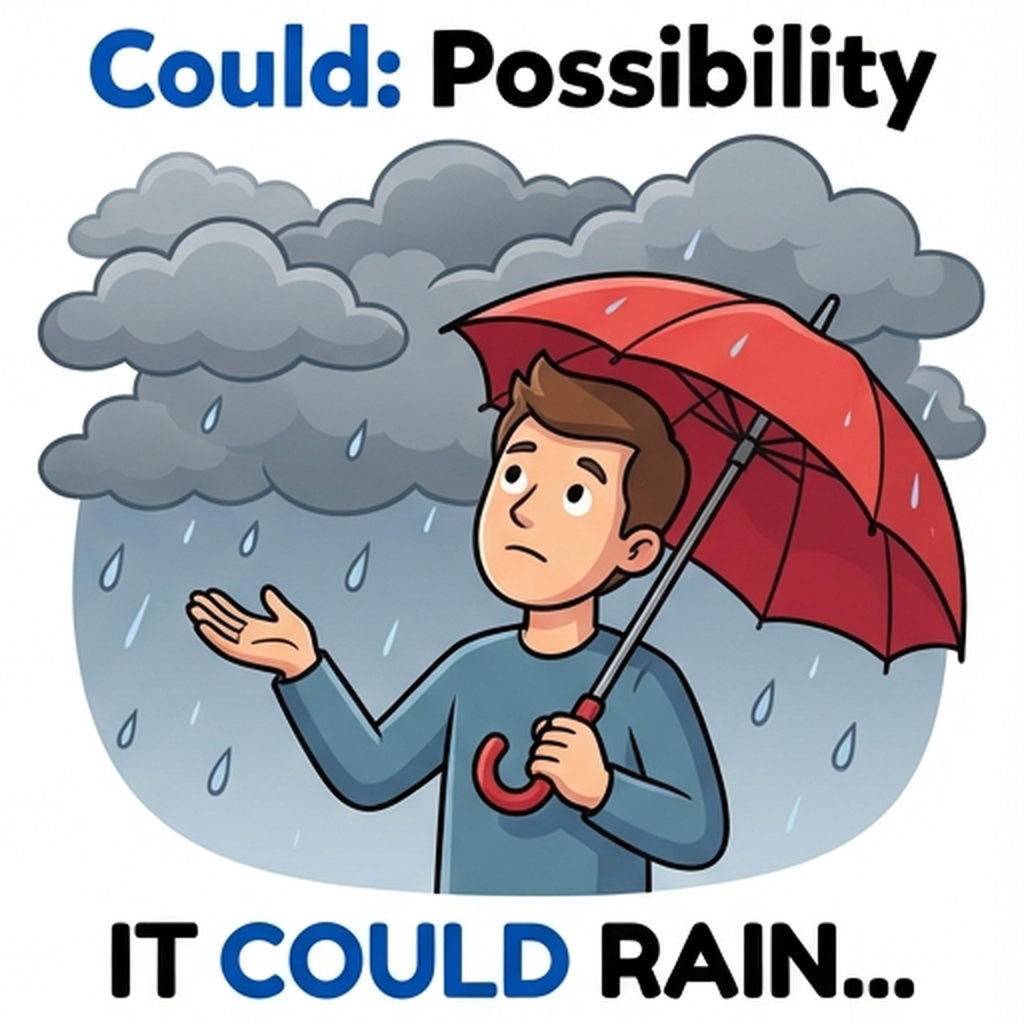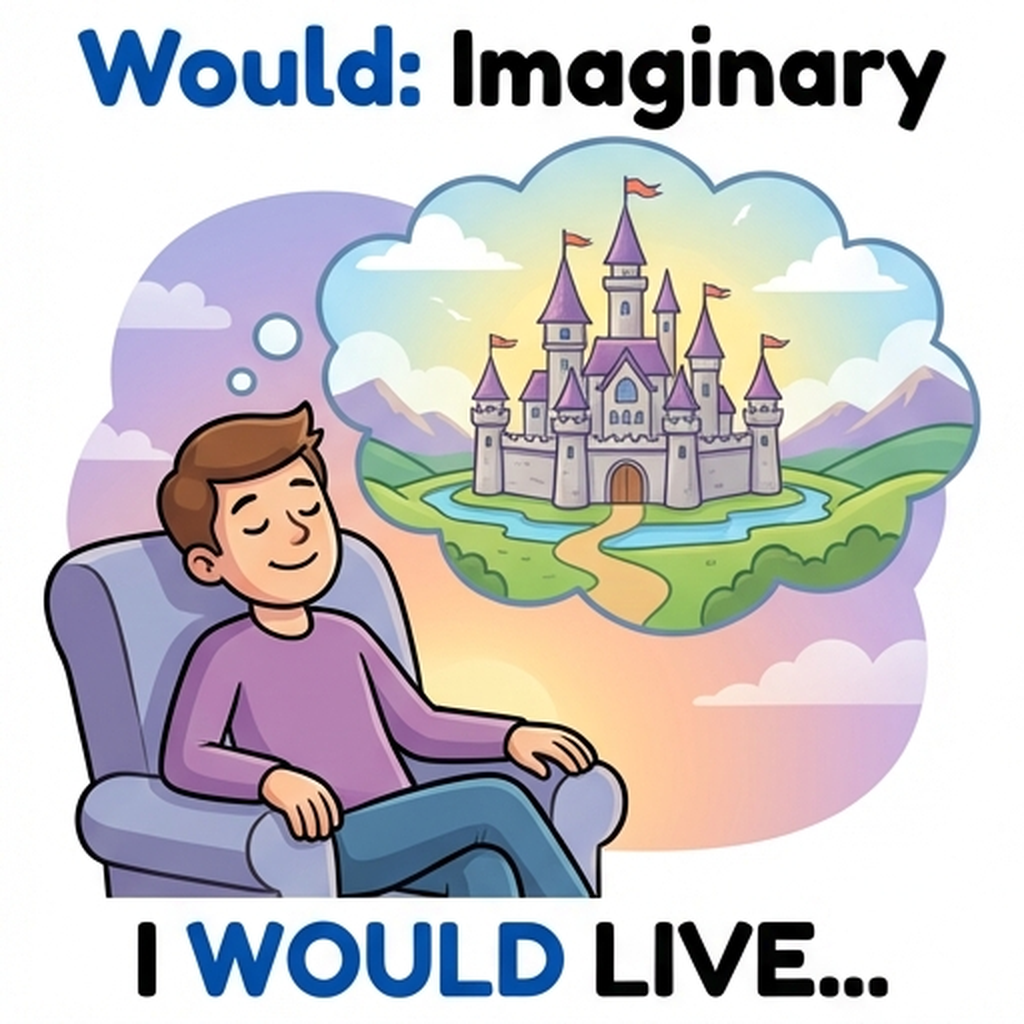Difference Between Could vs. Would
Is it 'Could you help me' or 'Would you help me'? These modal verbs often confuse learners. This guide explains the differences in ability, possibility, and imagination with clear examples.
Is it 'Could you help me' or 'Would you help me'? These modal verbs often confuse learners. This guide explains the differences in ability, possibility, and imagination with clear examples.
The modal verbs could and would are two of the most hardworking words in the English language. They appear in almost every conversation, from polite requests at a restaurant to high-level business negotiations. However, because they both function as the past or "softer" versions of can and will, learners often mix them up.
Understanding the difference between these two isn't just about grammar—it's about understanding nuance. One expresses what is possible, while the other expresses what is imagined or intended. This guide will clarify the rules once and for all, helping you sound more natural and precise in your speech. We'll explore their roots, their functions in conditional sentences, and how to use them to elevate your level of politeness.

Think of could as the word of "capability." It comes from the root of can, so it always carries a sense of physical or mental power, or the potential for something to happen. When you use "could," you are talking about what is biologically, physically, or logically possible in either the past or a hypothetical situation.
Primary Uses of "Could":


One key thing to remember about "could" is that it often feels "safer" than can when making requests. By asking "Could you...?", you are giving the other person a face-saving way to say no by implying that maybe they aren't able to do it, rather than just choosing not to.
If could is about capability, would is about willpower and imagination. It is the past tense form of will, so it deals with hypothetical worlds, recurring actions in the past, and polite offers of choice. It is the primary language used to describe "what if" scenarios.


Primary Uses of "Would":
A helpful tip for distinguishing the two is to look at the "hidden" meaning. Use could if you mean "it is possible." Use would if you mean "I intend to do this (if a condition is met)."
| Situation | Use "Could" For... | Use "Would" For... |
|---|---|---|
| Requests | Capability: Is it even possible for you to help? | Willingness: Are you choosing to help? |
| The Past | Power: I was capable of doing it. | Pattern: I performed the action regularly. |
| Results | Maybe: A potential outcome among many. | Result: The specific outcome of a "what if." |
When you are asking for something, both are polite, but they carry different "flavors" of politeness. This is a subtle point that native speakers use instinctively to navigate social situations.
If you are constructing a 2nd Conditional sentence, try this mental check:
"If I were you, I would..."
(Focuses on your decision/behavior in that role)
"If I were you, I could..."
(Focuses on the new abilities/options you would have)
Most learners make mistakes when they use these modals in combination with other verbs or in the wrong tense. These traps can make your English sound slightly "off" even if the meaning is clear.
Test your mastery! Choose the best option for each specific situation:
"___ you pass the salt, please?" (A polite request focusing on capability)
"If I had wings, I ___ fly over the ocean." (An imaginary result)
"I ___ speak three languages when I lived in Switzerland." (Past ability)
1. Could / 2. would / 3. could
Mastering the difference between could and would is a significant milestone in your English journey. It signals to listeners that you understand the fine line between reality and imagination, capability and willingness.
By shifting your perspective—seeing could as the modal of potential and would as the modal of the hypothetical—you'll find that your speech becomes more nuanced and professional. Keep practicing, keep listening, and soon these subtle shifts will become as natural as breathing. Happy learning!